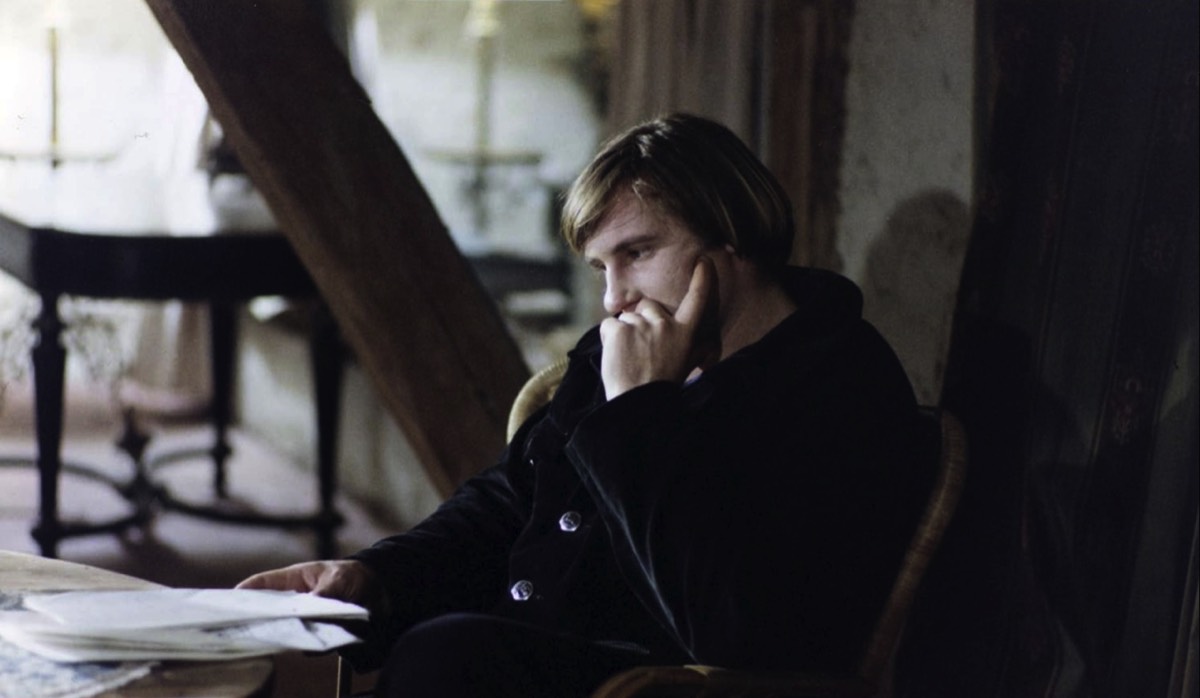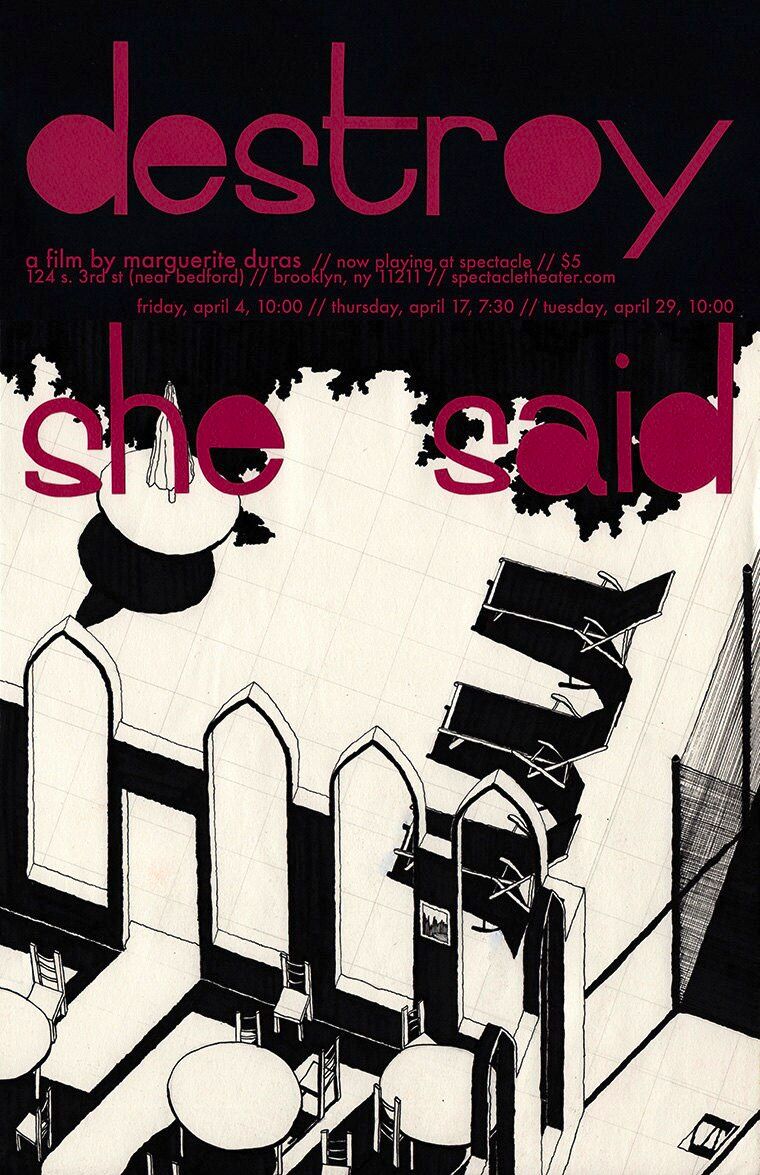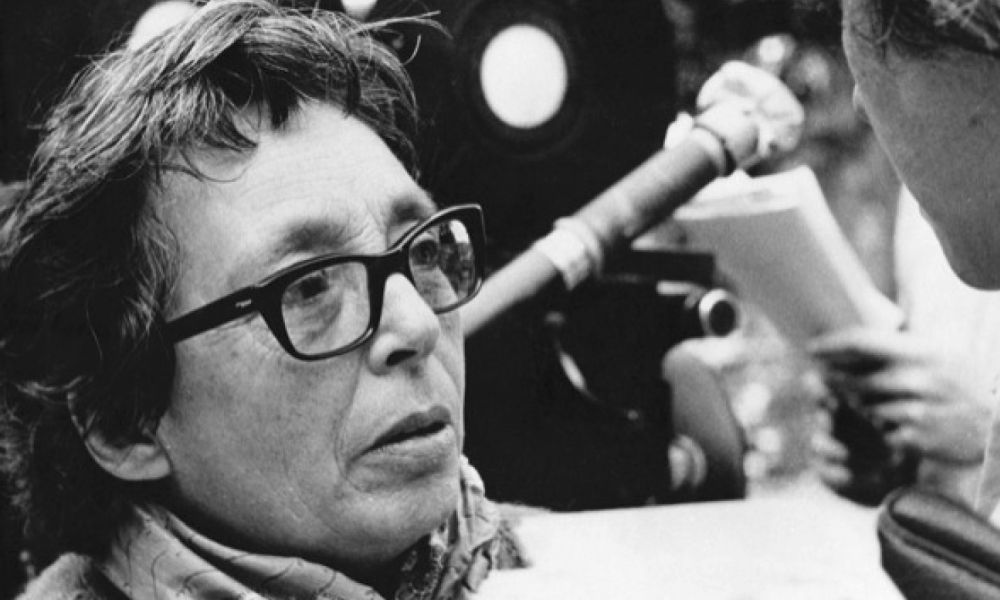"As minimal as they are, Duras’s narratives are partially derived from melodrama, focusing on relations between men and women, the nature or structure of desire, and colonialism and imperialism in both literal and metaphoric terms. In pursuing these issues through non-conventional narrative forms, and shifting the burden of discovering meaning to the audience, Duras’s films provide an alternative to conventional ways of watching movies. Her work is seen as exemplifying a feminine writing practice that challenges the patriarchal domination of classical narrative cinema." - M.B. White (International Dictionary of Films and Filmmakers, 2000)
Marguerite Duras
Director / Screenwriter
(1914-1996) Born April 4, Gia Dinh, French Cochinchina (now Vietnam)
Top 250 Directors
(1914-1996) Born April 4, Gia Dinh, French Cochinchina (now Vietnam)
Top 250 Directors
Key Production Country: France
Key Genres: Drama, Psychological Drama, Feminist Film, Romance, Family Drama, Avant-garde/Experimental
Key Collaborators: Carlos D'Alessio (Composer), Michael Lonsdale (Leading Actor), Pierre Lhomme (Cinematographer), Bruno Nuytten (Cinematographer), Catherine Sellers (Leading Actress), Bulle Ogier (Leading Actress), Nicole Hiss (Leading Actress), Gérard Depardieu (Leading Actor), Delphine Seyrig (Leading Actress), Mathieu Carrière (Leading Actor), Daniel Gélin (Leading Actor), Pierre Barat (Producer)
Key Genres: Drama, Psychological Drama, Feminist Film, Romance, Family Drama, Avant-garde/Experimental
Key Collaborators: Carlos D'Alessio (Composer), Michael Lonsdale (Leading Actor), Pierre Lhomme (Cinematographer), Bruno Nuytten (Cinematographer), Catherine Sellers (Leading Actress), Bulle Ogier (Leading Actress), Nicole Hiss (Leading Actress), Gérard Depardieu (Leading Actor), Delphine Seyrig (Leading Actress), Mathieu Carrière (Leading Actor), Daniel Gélin (Leading Actor), Pierre Barat (Producer)
"Influential novelist who has had several of her works brought to the screen by others, contributed the haunting script for Alain Resnais's Hiroshima, Mon Amour (1959), and began her own career as a film writer-director in the mid-1960s. Associated with the "nouveau roman" school, Duras generally eschews action and plot in favor of stylized meditations on themes such as memory, subjectivity and the nature of human relationships." - The Virgin International Encyclopedia of Film, 1992
"Though predominantly known as one of the foremost writers of the nouveau roman movement, Marguerite Duras was an equally adept if underrated filmmaker. Like her contemporary Alain Robbe-Grillet, she found that her sparse prose style and deeply haunted themes had equal purchase in often complex and experimental cinematic forms…. Duras, however, is one of cinema’s most adept and quiet radicals. Her work, though barely discussed in comparison to that of her peers, deserves to be recognised as some of the most innovative, emotional and daring produced in postwar France." - Adam Scovell (BFI, 2019)

Le Camion (1977)
"Experimental in form, Duras's movies featured characters that might have also appeared in her plays or novels and also utilized a voice-over that alluded to rather than told a story. Notable works included the fantasy drama India Song (1975) and the skewed romance Le Camion (1977), in which Duras starred alongside Gérard Depardieu. She published her critically-acclaimed, loosely autobiographical novel L'Amant in 1984, which told the story of a French girl living in Vietnam who has an affair with a rich Chinese man; the novel was adapted for cinema in 1992." - Tim Evans (501 Movie Directors, 2007)
"Marguerite Duras had already established herself as one of the major figures of postwar French literature when she launched an equally fascinating and unclassifiable career in cinema, translating her elliptical, experimental style to the screen through an unprecedented fusion of hypnotic, highly stylized imagery and radically disjunctive sound." - The Criterion Collection
"Duras was a literary novelist and doyenne of the nouveau roman who contributed, either as a director or screenwriter, to some of the most challenging avant-garde art house films of the past fifty years. Her first cinematic masterpiece was her elusive but ultimately overwhelming script for Alain Resnais's brilliant Hiroshima Mon Amour (1959)… Preoccupied throughout her life with memories of her childhood in French Indochina, Duras's own directorial efforts were not always as satisfying as her collaborations, and it occasionally seemed as though the very collaborative nature of filmmaking was in some way alien to the essentially solitary state of an artist of her calibre." - Mario Reading (The Movie Companion, 2006)
"Marguerite Duras, called “preposterous, self-obsessed, eloquent, unstoppable” (New York Times Review of Books), was one of the most widely read French writers of the postwar era. She authored 34 novels from 1943-1993, including her autobiographical L’Amant (The Lover), winner of France’s distinguished literary Prix Goncourt. She also penned the celebrated film Hiroshima, Mon Amour. Disliking others’ adaptations of her work, in the 1960s she began to direct—16 films in all. Her work is characterized by its self-reflexive nature; she often moved one story, or elements of a story, through genres: novel, film, play—even film to film." - Walker Art Center, 2010
Selected Filmography
{{row.titlelong}}
Marguerite Duras / Fan Club
Agnès Wildenstein, Drake Stutesman, Richard Kuipers, Freddy Buache, José Luis Torres Leiva, Ricky D'Ambrose, Martin Brady, Paul Buck, Richard Dyer, Alice Diop, Maximilien Luc Proctor, Cesar Zamberlan.
Agnès Wildenstein, Drake Stutesman, Richard Kuipers, Freddy Buache, José Luis Torres Leiva, Ricky D'Ambrose, Martin Brady, Paul Buck, Richard Dyer, Alice Diop, Maximilien Luc Proctor, Cesar Zamberlan.
"Fan Club"
These film critics/filmmakers have, on multiple occasions, selected this director’s work within film ballots/lists that they have submitted.
These film critics/filmmakers have, on multiple occasions, selected this director’s work within film ballots/lists that they have submitted.


